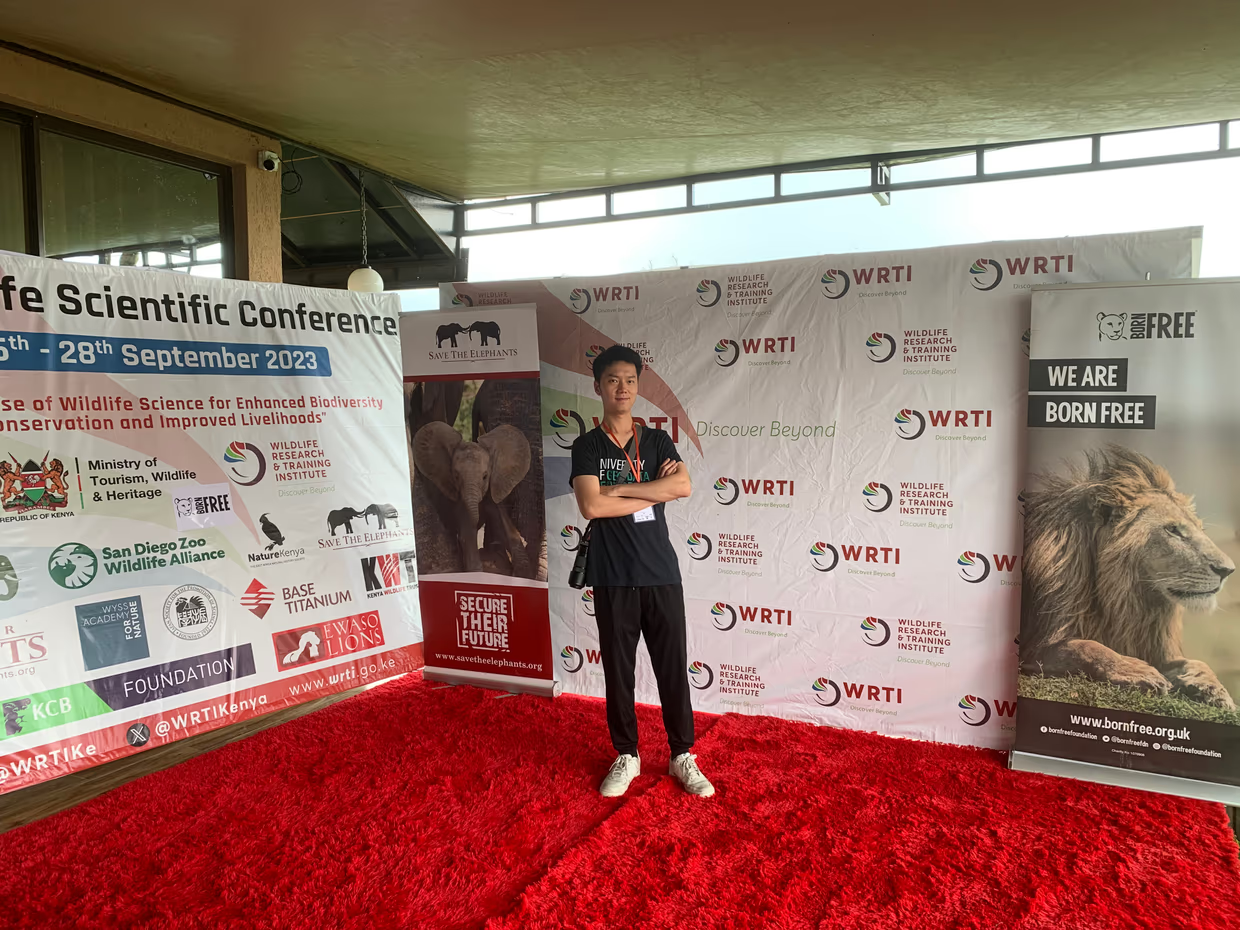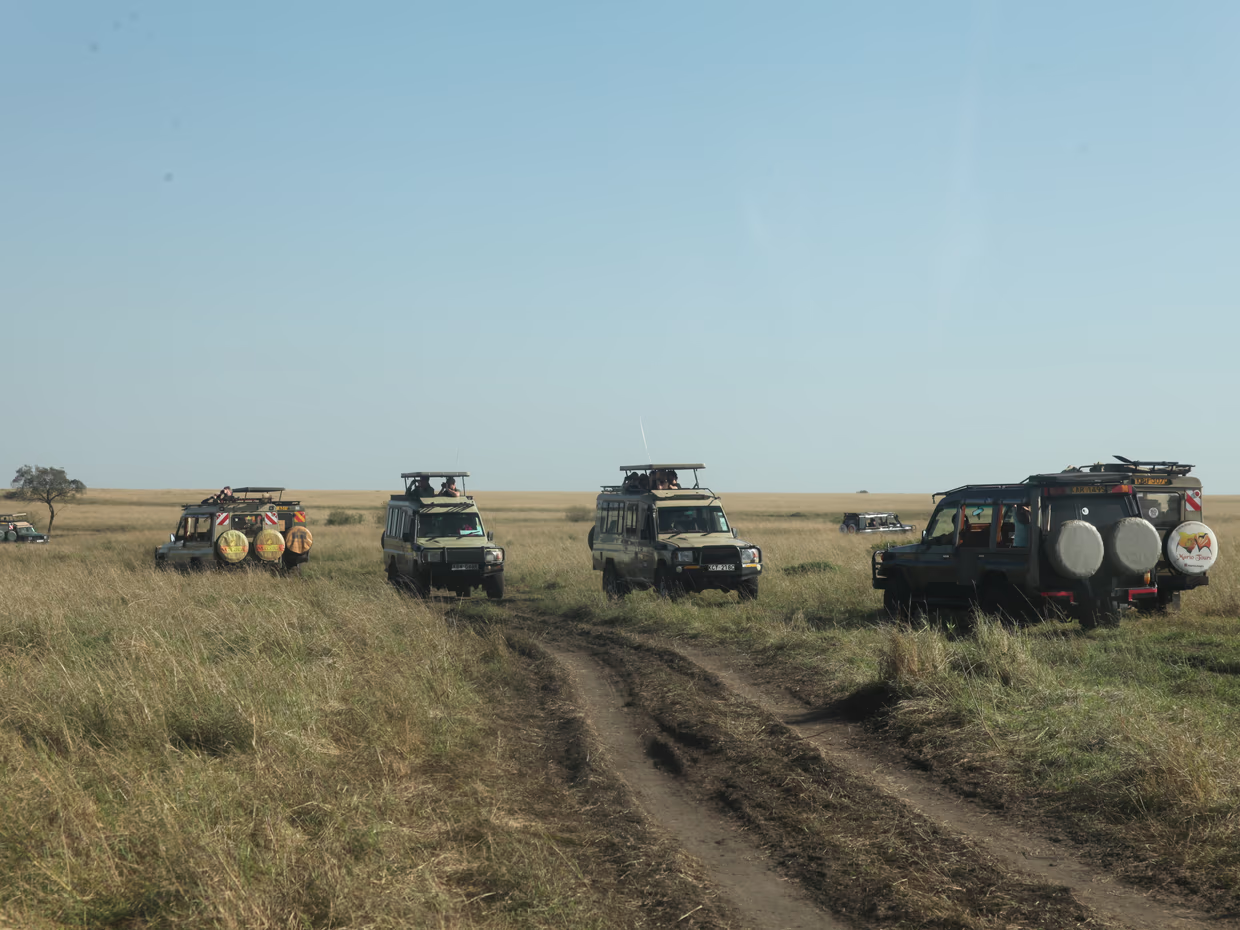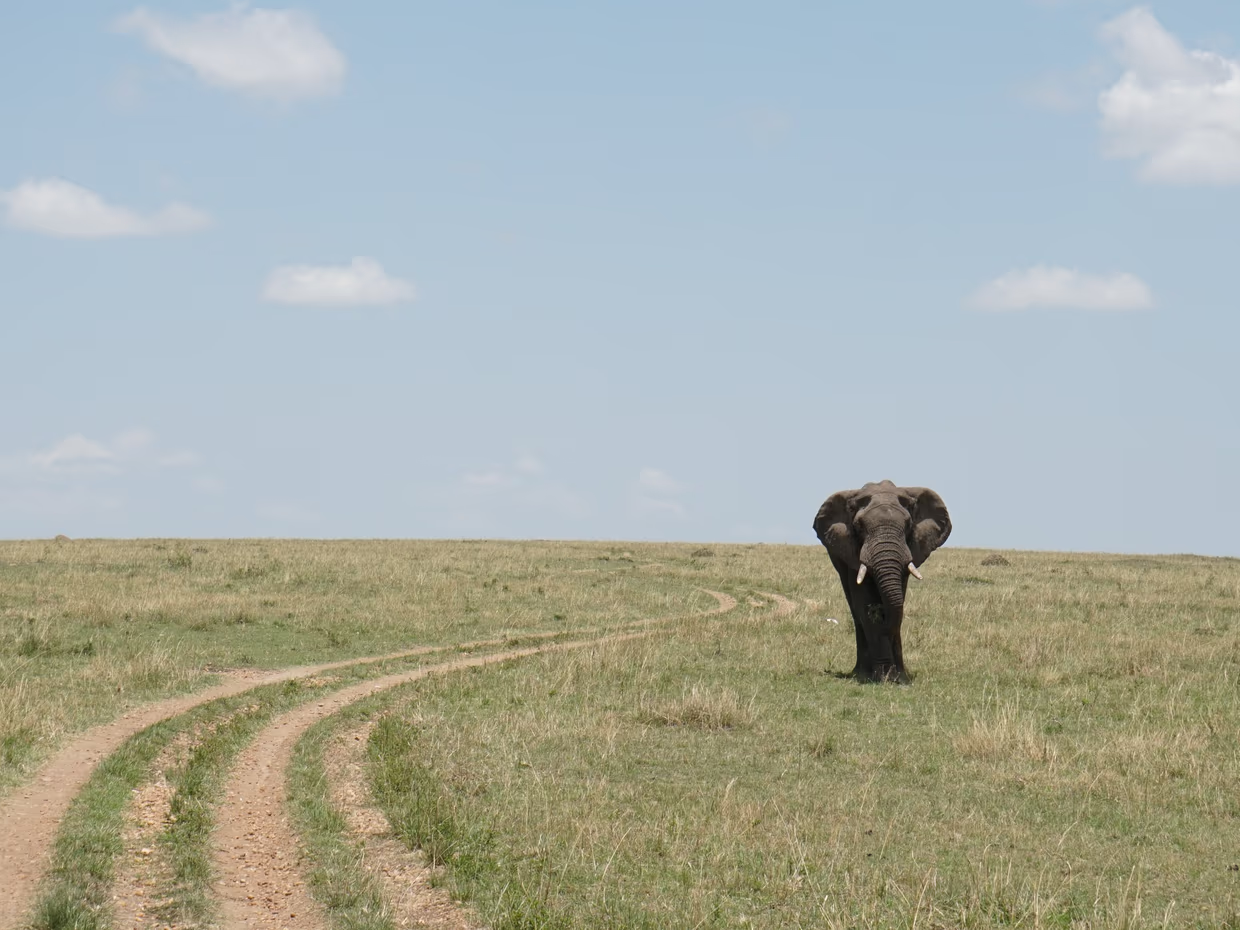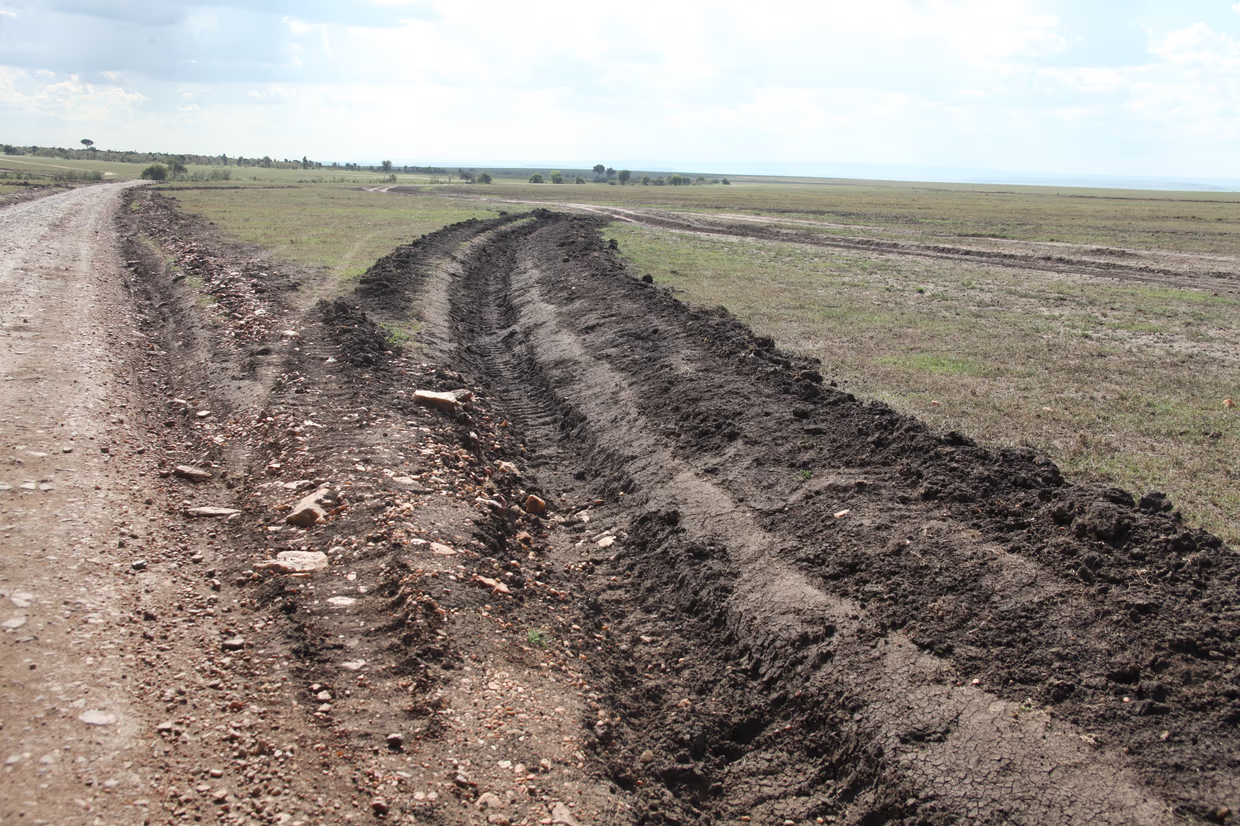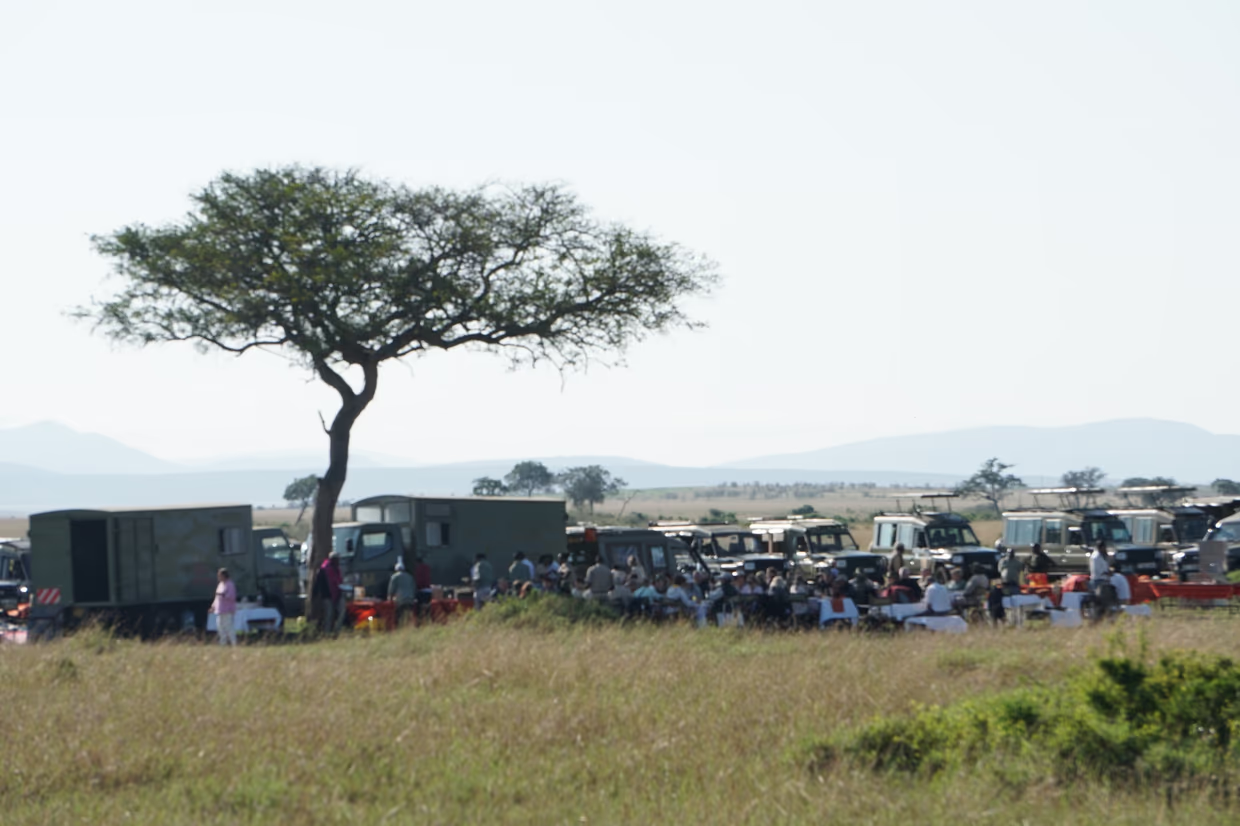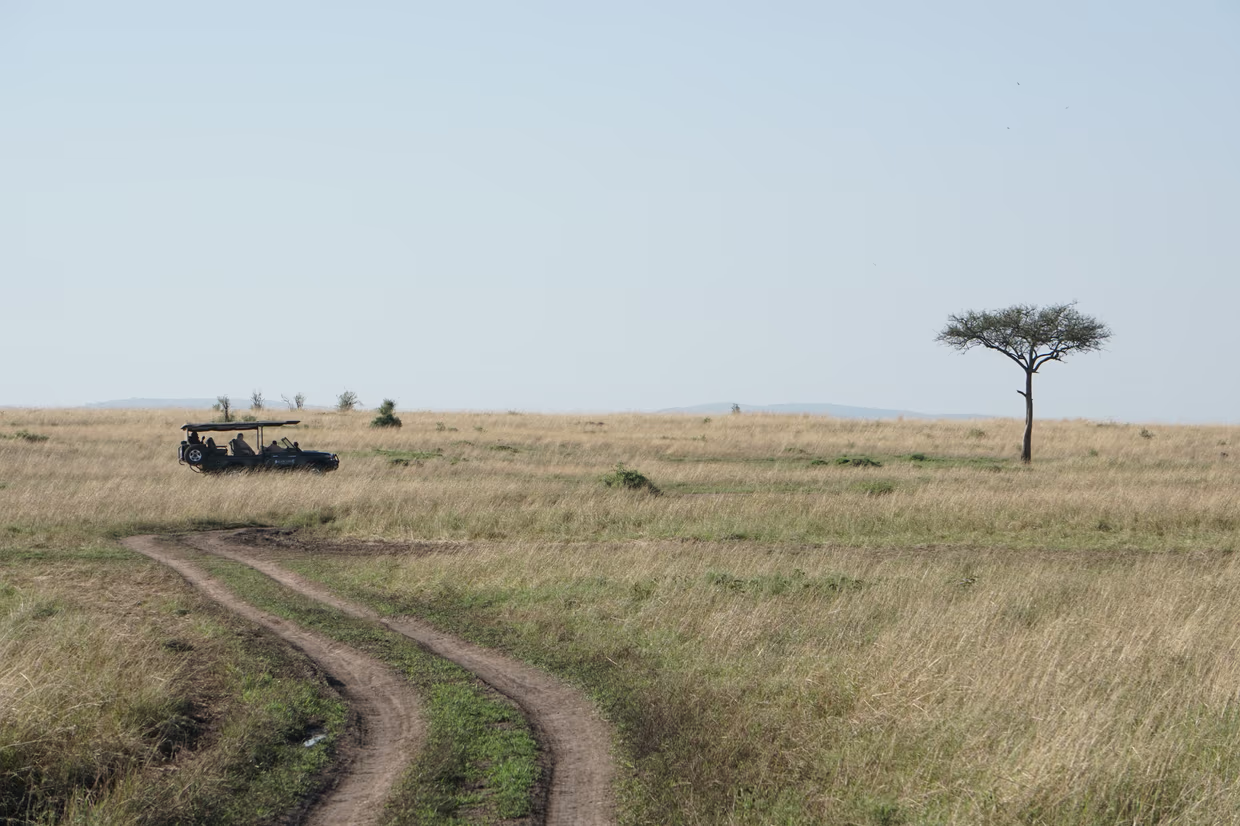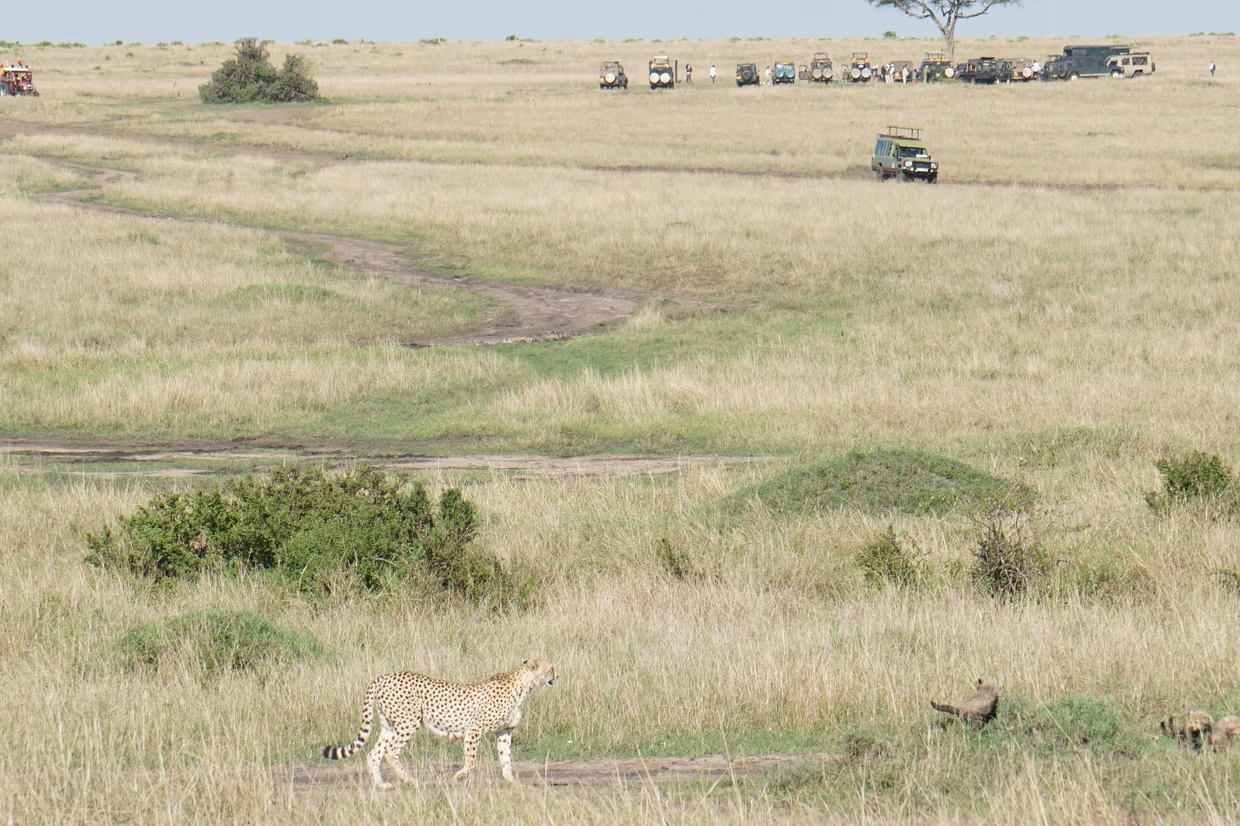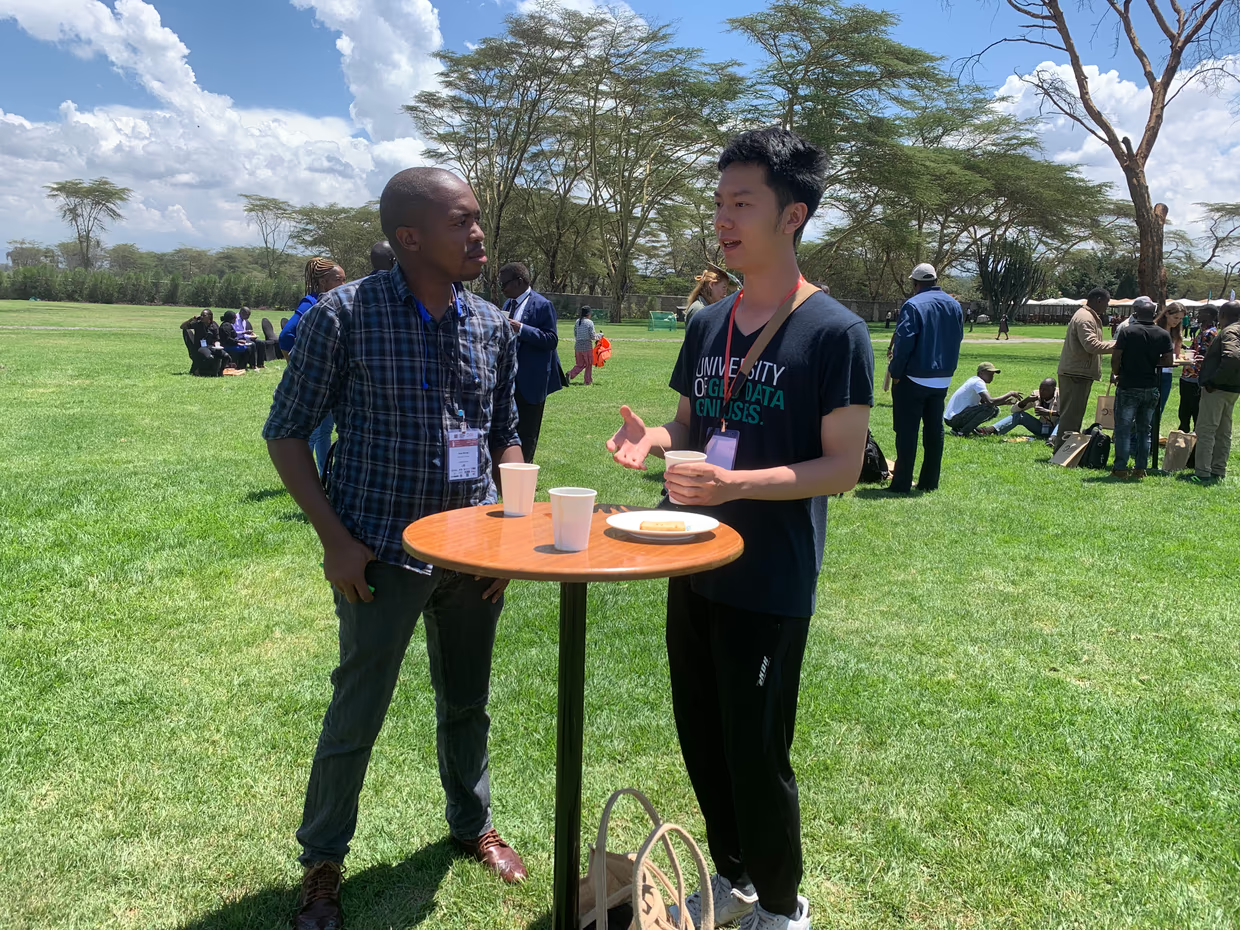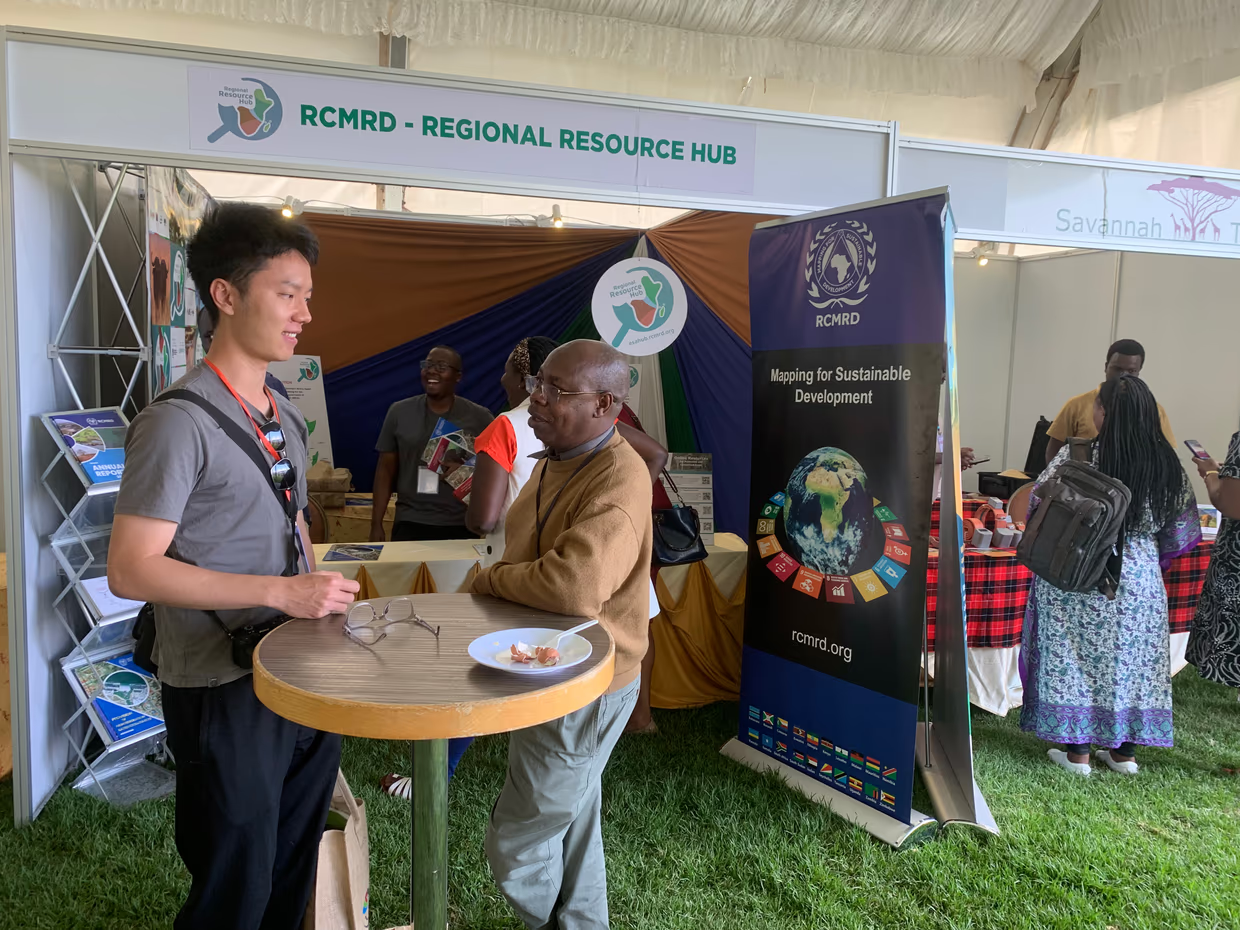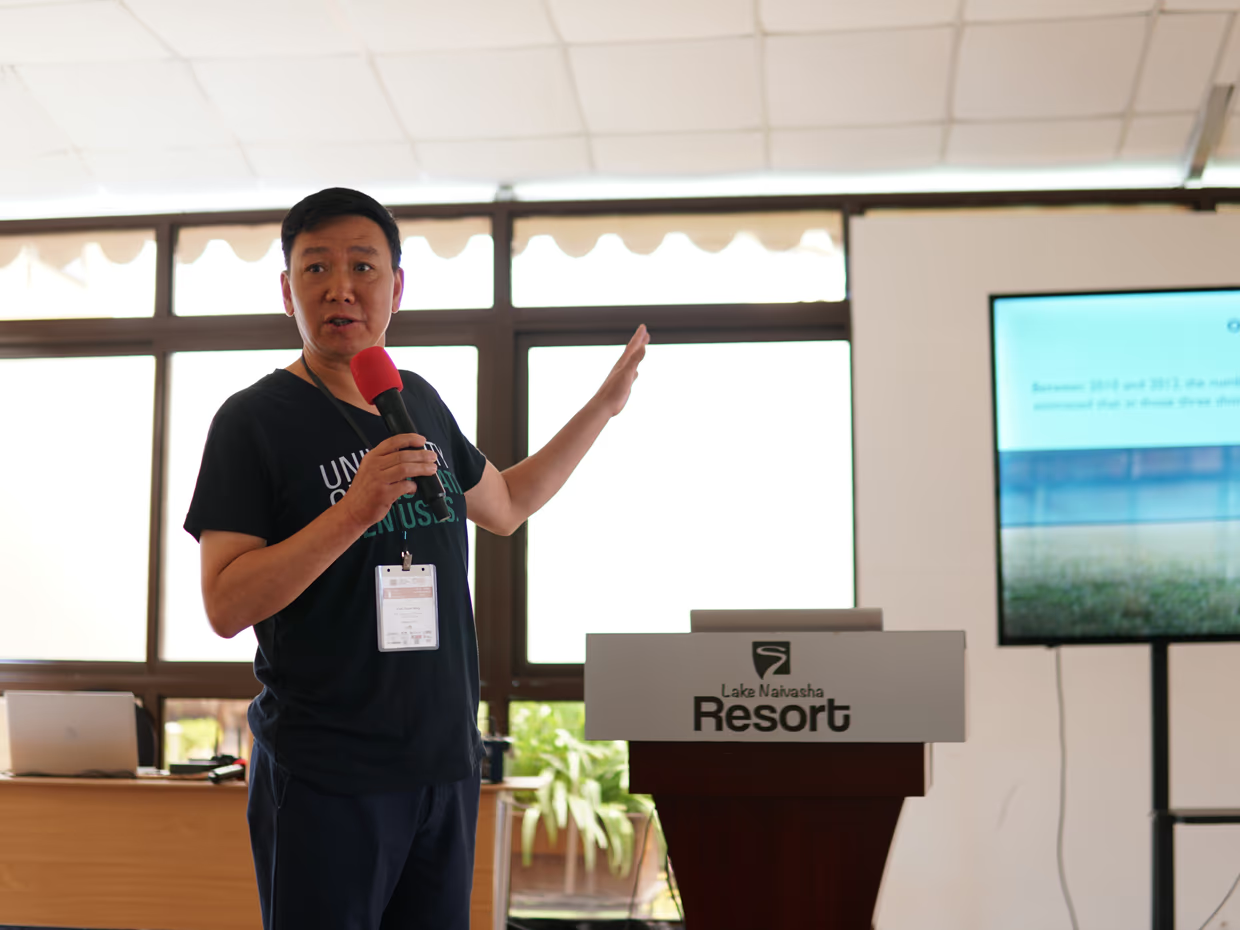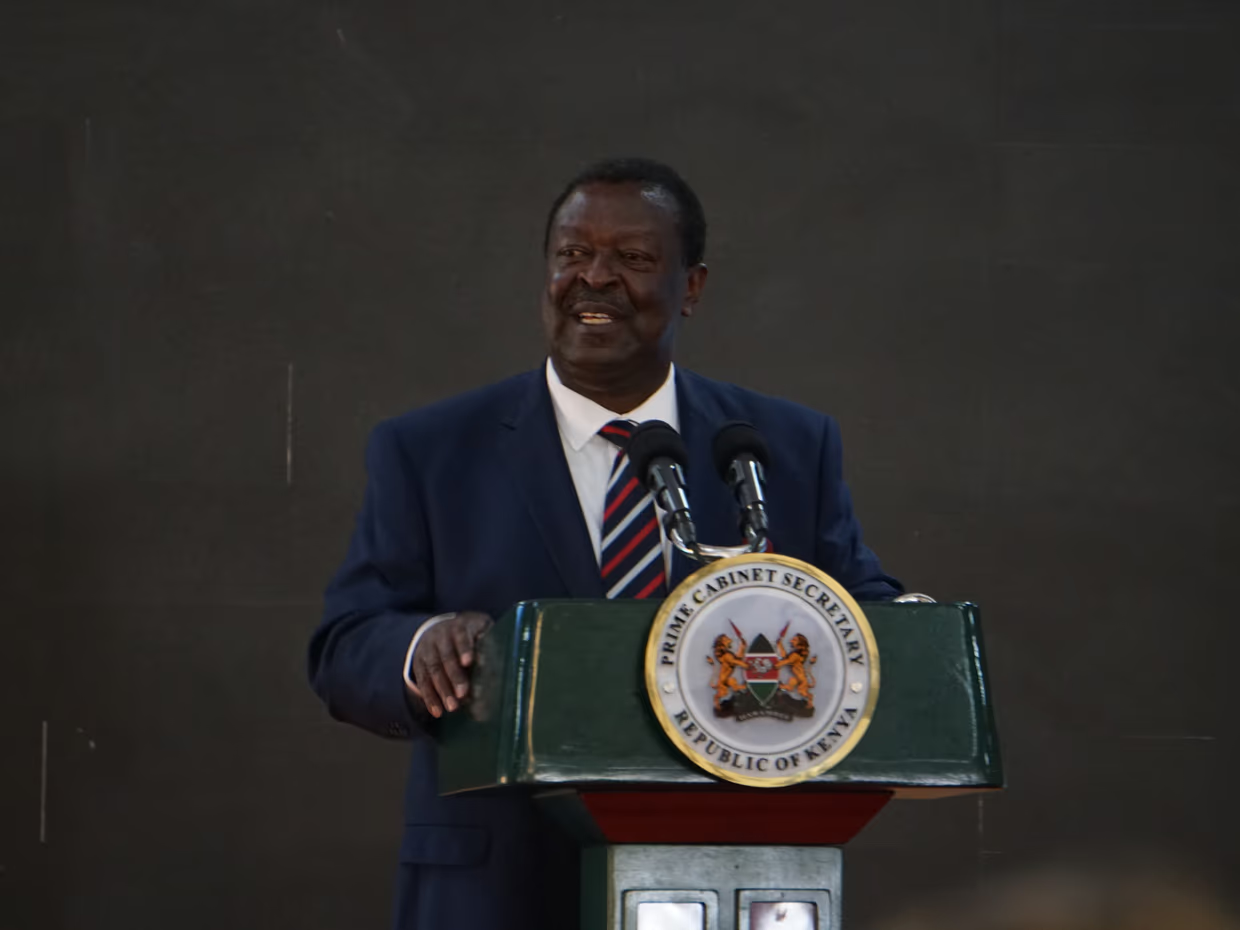Zhaoyang Yu is an MSc student from the Master’s in Geo-Information Science and Earth Observation of the ITC Faculty. He has a big passion for wildlife conservation since he was a big fan of BBC’s Planet Earth documentary. Now, at the NRM Specialization, he is making his dreams come true with his MSc thesis research to prevent cars from driving off-road in safaris, which endangers the habitat of wild animals.
To conduct fieldwork for his Thesis, Zhaoyang travelled to Kenya, visited the Masai Mara National Reserve and attended the 2023 Wildlife Scientific Conference.
What has been your experience studying the MSc so far?
It was a unique experience in comparison to other students because I started the track in Urban Planning Management but then switched to Natural Resource Management for my MSc thesis. I went for Urban Planning in the beginning because I did a bachelor's in urban informatics. Then, I arrived at the ITC Faculty and started learning basic skills in Geo-Information Science and Remote Sensing. The specialization in Urban Planning has a lot of theoratical concepts on urban management and policies, but I was more interested in the technical aspects of environmental remote sensing, and topics in Natural Resources really fit my appetite.
I always dreamt of researching something related to animal protection because I used to be a huge fan of Planet Earth, the BBC documentary. In one of their episodes, they dive deep into conflicts between humans and animals, which really caught my attention. In this episode, sea turtles use the moonlight as a visual reference to crawl between the beach and the sea. However, because of human activities such as urbanization, they take the wrong direction, which endangers their survival. That case shocked me as I realized the impact that we humans have on other beings.
And during this year, what was your favourite course and why?
I think my favourite course is Advanced Image Analysis, as it teaches state-of-the-art algorithms for remote sensing. I like it as it is useful for my MSc research, especially from the deep learning practice on satellite image aspect.
You mentioned all these interests of yours, such as animal-human conflict, urban planning, natural resource management and remote sensing. What did you choose as your MSc thesis topic?
My topic is detecting and mapping off-road driving tracks in safaris using deep Learning.
African countries like Tanzania, South Africa and Kenya have amazing wildlife resources which attract a lot of tourists. In the case of Kenya, tourism even represented one-fifth of its 2020 GDP income. Tourists are attracted to Safaris and not all of them are respectful towards the environment. They might try to hunt down animals with their cameras leaving the official tracks, invading the species' environment and harming the habitat of many species. By going off-road, cars degrade the grassland and compact the soil, which prevents rain from penetrating the soil surface. This is quite detrimental to the animals and their ecosystem.
With my thesis topic, I aim to use artificial intelligent techiniques to detect these kinds of tracks and find a way to monitor the situation in the Masai Mara National Reserve of Kenya. This national park has very concretely stated that driving off-roads is forbidden, yet the problem persists. They have an official road that they maintain regularly but still, some guides and tourists disobey the rules to get a better view of animals. Having a mechanism to map the off-road tracks and regularly monitor if new ones appear would be very helpful for them to address this issue.
You’ve shown how cars are detrimental to the animals’ environment. How do these wild animals perceive cars?
Cars cause lots of disturbance to animals, as they also do to humans in cities. When I was in Masai Mara there would often be traffic congestion because there were lots of cars on the roads of the National Reserve. When we saw lots of cars, then we knew that there must be animals there. So you can imagine the effect that such traffic congestion has on a wild animal. This is not an average urban traffic congestion, but a wide block of cars that detoured from the main road.
Off-road driving is a recurring problem at the Masai Mara National Reserve
At some moment we saw a cheetah. Cars quickly gathered around and started taking pictures of the cheetah. The cheetah suddenly stopped still; she was waiting for us to leave because she wanted some personal space. It is unfortunately a reflection of this aggressive kind of tourism.
What did you do during this trip to Masai Mara?
I travelled with my Thesis supervisor Associate Professor Tiejun Wang to check the off-road situations there, which can contribute to some sampling work from the satellite images I will use in my research. It was good for me to see with my own eyes how the problem exactly looks like in real life and not just on a screen. Since the trip, I’ve developed a deeper understanding of the area and the research questions of my study.
For example, during our trip, we noticed that there might be some like-gutters that were made to divert the water from the main road during the rain season. We would have never known unless we saw them in person, as they look very similar to an off-road track from the satellite images.
I was in Kenya for seven days, three days were in Masai Mara and the other three days at the Wildlife Scientific Conference which took place in Naiwasha this year.
How did you experience the conference? I understand it is one of the most important conferences in the field
It was a very good experience. We got closed to the scientists who works on the wildlife conservation field, and some of them were working on the same study area. We had conversations and there is a chance to conduct further cooperation between us. I expanded my knowledge about this field, such as the conflict between livestock and wildlife, or the challenges during the COVID-19. We also met some alumni and had great talks with them. They were curious about our new Faculty building, so we invited them to come visit us.
Highlights from the 2023 Wildlife Scientific Conference.
How are you dealing with your thesis?
I started the Thesis in August, and this trip was necessary to understand the current situation and validate the proposal. First I passed the proposal defense and then I went on the fieldwork trip in Kenya. Now I'm starting to manage the experiments. I hope to finish the Thesis by June next year, but that date might vary. I need to make two sets of training data and sample data, followed by the deep learning algoirthm training and analysis; this means that I will deal with two different satellite images, to make comparisons on their performance. This involves a lot of work and experimentation. It’s both challenging and exciting to me, and I am completely enjoying it.
And how do you aim to continue your career when you graduate from your MSc?
As I said before, I want to go deeper into researching wildlife. I feel lucky to have found a topic that I am willing to devote to for the rest of my life. I think conducting a PhD would be one of the best ways to continue developing the research I love while receiving support. At the Wildlife Scientific Conference in Naiwasha, I met some people who have devoted their whole life to wildlife conservation, and it was fascinating. I wish to do the same. The training I received at ITC greatly improved my knowledge and skills, as well as my confidence in pursuing a PhD, and I enjoy this place very much.
More recent news
 Fri 10 Oct 2025ECO-MOSAIC: A new ESA-funded project to monitor biodiversity under Climate Change
Fri 10 Oct 2025ECO-MOSAIC: A new ESA-funded project to monitor biodiversity under Climate Change Wed 1 Oct 2025Erasmus+ funds the GEM Programme for 4 more intakes on its 21st anniversary
Wed 1 Oct 2025Erasmus+ funds the GEM Programme for 4 more intakes on its 21st anniversary Tue 22 Jul 2025In Memoriam: Dr. Abel Chemura
Tue 22 Jul 2025In Memoriam: Dr. Abel Chemura Mon 30 Jun 2025GEM Joint Event 2025
Mon 30 Jun 2025GEM Joint Event 2025 Fri 6 Jun 2025PhD candidate Novia Arinda Pradisty receives KNAW grant to research mangrove ecosystems
Fri 6 Jun 2025PhD candidate Novia Arinda Pradisty receives KNAW grant to research mangrove ecosystems


